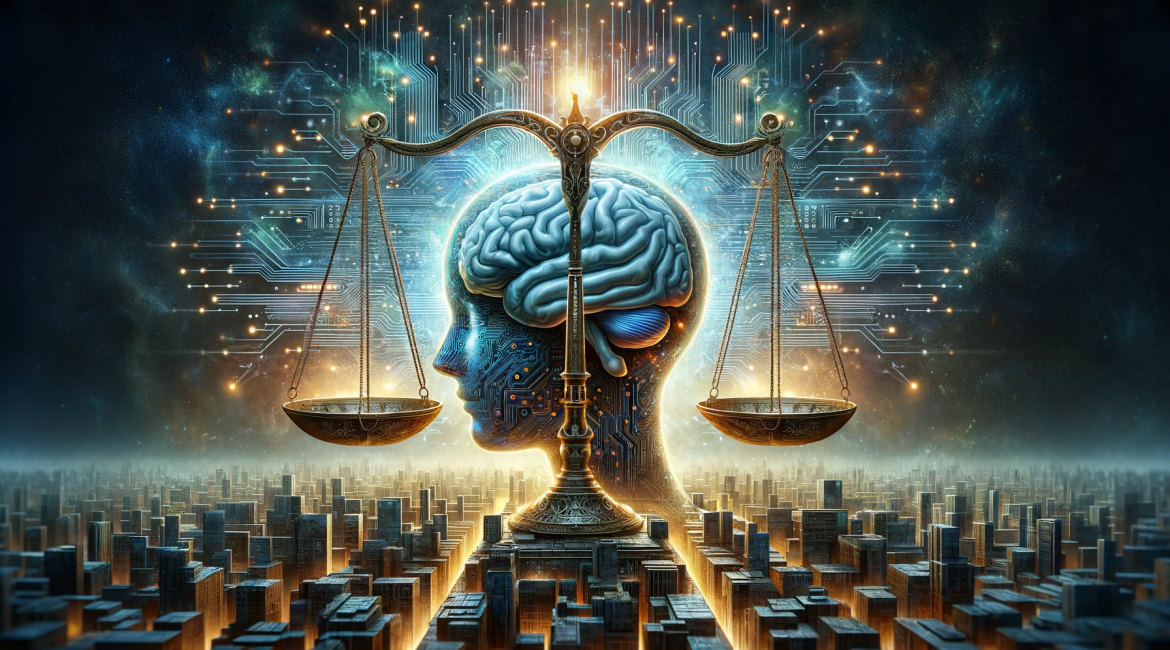AI Ethics: More Than Just Code and Algorithms
In the age where algorithms influence everything from our shopping habits to life-changing decisions, the emergence of AI as a ubiquitous force is both exhilarating and alarming. It’s not just about coding and data anymore; it’s about the soul of our future society. This article takes a dive into the deep waters of AI ethics, exploring the intricate and often overlooked moral dilemmas that come with artificial intelligence. As AI weaves itself into the fabric of everyday life, it’s imperative to pause and consider the ethical compass guiding its course.
Understanding the Depth of AI Ethics
AI isn’t just another technological advancement; it’s a new entity in our social and moral ecosystem. It challenges our traditional understanding of ethics, which has always been a human-centric discipline. The questions now extend beyond the intentions of creators to the actions of the AI itself. Is it fair? Is it just? Does it perpetuate the biases of its creators, or does it offer a new perspective, free from human prejudice?
The Balancing Act: Innovation vs. Regulation
The allure of AI lies in its immense potential for innovation. It promises efficiency, speed, and solutions to problems that have long plagued humanity. But there’s a catch. Unchecked, AI can amplify existing societal biases, infringe on privacy, and even make decisions that carry significant moral weight without human oversight. Striking a balance between unleashing the innovative power of AI and tethering it with ethical considerations is one of the greatest challenges of our time.
AI as a Mirror to Society
AI systems, at their core, reflect the values and biases of those who create them. This reflection isn’t always flattering. It can reveal uncomfortable truths about societal biases and inequalities. For instance, if an AI in hiring practices learns from historical data steeped in bias, it can perpetuate that bias, making it a norm rather than an exception. The ethical deployment of AI requires a critical examination not just of the technology itself, but of the societal norms it’s based upon.
The Road Ahead: Ethics in AI Development
Developing ethical AI is not just a technical challenge; it’s a cultural and philosophical one. It requires a multidisciplinary approach, blending insights from technology, sociology, philosophy, and law. Guidelines and frameworks for ethical AI are emerging, but they need to be dynamic, evolving with the technology itself. This journey isn’t just about creating rules for AI; it’s about understanding what it means to be human in an increasingly AI-driven world.
Conclusion: A Collective Responsibility
As we stand at the crossroads of a new era, the ethical dimensions of AI call for a collective responsibility. It’s not just the responsibility of technologists, but of all members of society. From policymakers to the general public, everyone has a stake in shaping how AI evolves. By engaging in these discussions, we ensure that the future of AI aligns not just with our technological ambitions, but also with our moral and ethical principles. The future of AI is a tapestry we are all weaving – let’s make sure it reflects the best of humanity.
References:
Jessica Morley, et al. “Ethics as a Service: A Pragmatic Operationalisation of AI Ethics.” Minds and Machines, vol. 31, no. 2, Springer Science+Business Media, June 2021, pp. 239–56, doi:10.1007/s11023-021-09563-w.
Thilo Hagendorff. (2020). The Ethics of AI Ethics: An Evaluation of Guidelines. Minds and Machines, 30(1), 99–120. doi:10.1007/s11023-020-09517-8




